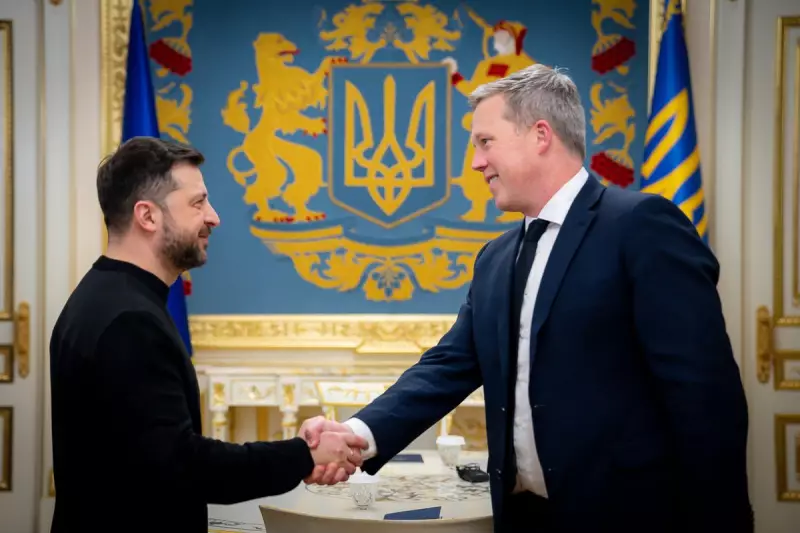
In a surprising diplomatic move, US Army Secretary Dan Driscoll has transformed from managing military bureaucracy to becoming a central figure in the Trump administration's efforts to broker peace in the Russia-Ukraine conflict.
From Pentagon to Peace Talks
The boyish 38-year-old Iraq War veteran and former venture capitalist has experienced a remarkable career shift in recent days. Dan Driscoll, who only assumed his position as Army Secretary in February, suddenly found himself thrust into high-stakes international diplomacy.
His whirlwind tour began with presenting President Donald Trump's peace plan to Ukrainian President Volodymyr Zelenskyy in Kyiv, followed immediately by negotiations with Russian officials in the United Arab Emirates on Monday and Tuesday.
President Trump appears confident in Driscoll's efforts, posting on social media that "my team has made tremendous progress." The commander-in-chief further announced on Tuesday that he had directed Special Envoy Steve Witkoff to meet with President Putin in Moscow while Secretary Driscoll would simultaneously meet with Ukrainian representatives.
An Unconventional Diplomatic Appointment
The assignment marks a dramatic departure from Driscoll's confirmed responsibilities. His Senate confirmation hearing had focused exclusively on military modernization, recruitment challenges, and strengthening the defence industrial base - with no mention of international peace negotiations.
According to a US official speaking anonymously about sensitive plans, Driscoll learned of his new role as negotiator just one week before facing President Zelenskyy across the table. His originally planned visit to Ukraine was intended to study drone warfare applications, not to negotiate an end to Europe's most protracted conflict since 1945.
Following his White House appointment as special representative, Driscoll travelled to Europe for briefings before proceeding to Ukraine. During his meeting with Zelenskyy, the Army Secretary expressed profound admiration for Ukrainian soldiers, noting that even the most battle-hardened American troops "never had to defend their homeland."
Political Connections and Negotiating Leverage
Experts suggest Driscoll's unexpected diplomatic role represents the Trump administration's unconventional approach to foreign policy. Max Bergmann, director of the Europe, Russia and Eurasia Program at the Center for Strategic and International Studies, commented: "I think what is helpful from this administration is its willingness to throw out ideas and try things."
Driscoll's value in negotiations appears to stem from his close relationship with Vice President JD Vance. The two have been friends since their Yale Law School days, and Driscoll previously served as Vance's adviser. This connection provides the Army Secretary with direct access to the administration's highest levels during critical negotiations.
Bergmann observed: "There is something to be said about having someone who is probably texting with the vice president and therefore has that political juice." However, he cautioned that expertise remains crucial in complex diplomatic matters, noting "the details really matter here."
Daniel Fried, former US ambassador to Poland and current Atlantic Council fellow, suggested that Driscoll could overcome his lack of diplomatic experience with proper advisory support. Fried emphasized that having someone trusted by the administration represents a significant asset in such sensitive negotiations.
Driscoll's performance in Ukraine evidently impressed administration officials, as he subsequently joined Secretary of State Marco Rubio, Witkoff, and other top negotiators in Geneva to discuss plan modifications before travelling to Abu Dhabi for talks with Russian representatives.
The Army Secretary does possess some relevant negotiation experience from his current role, having engaged in discussions with Hawaiian officials about extending the Army's lease on the only large-scale live-fire training range for ground forces in Hawaii - a facility crucial for rapidly deploying troops to Asia and the Pacific.
As peace talks continue, the international community watches closely to see whether this unconventional diplomatic appointment will yield the breakthrough that has eluded more traditional negotiators since Russia's invasion began.





